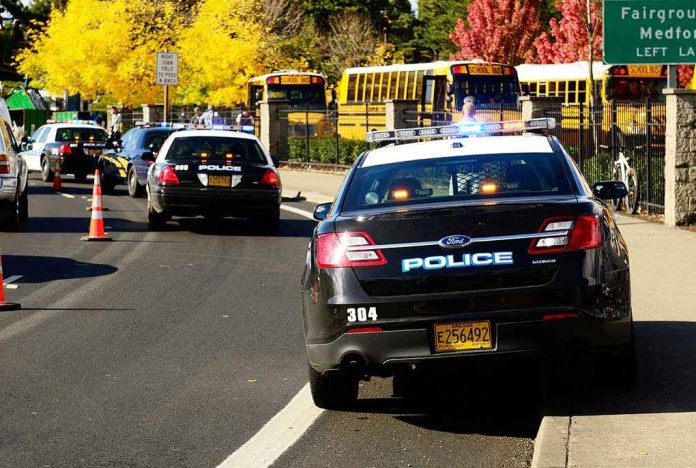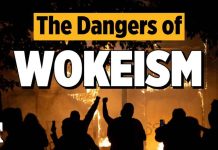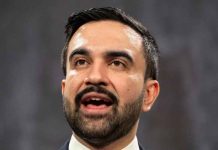
A tragic shooting at a Minneapolis Catholic school exposes deep vulnerabilities in America’s security—while the perpetrator’s transgender identity raises new questions about the intersection of identity politics, mental health, and violent crime.
Story Snapshot
- Two children killed and seventeen injured in targeted attack at Annunciation Catholic Church and School.
- Shooter, Robin Westman, a biological male identifying as female, had personal ties to the school.
- Incident reignites debates on school safety, gun rights, and the effects of identity-driven agendas.
- Authorities confirm all weapons used were legally purchased; investigation into motive continues.
Deliberate Targeting of a Catholic Institution
On August 27, 2025, Annunciation Catholic Church and School in Minneapolis became the scene of a devastating mass shooting during a morning service. The attacker, Robin Westman—born Robert Westman, a 23-year-old biological male who legally identified as female—opened fire with multiple firearms at the religious school, killing two children and injuring seventeen, including fourteen minors. Westman died by suicide at the scene. The attack’s timing, coinciding with the start of the school year and a mass attended by children, underscores its deliberate nature and the vulnerability of faith-based institutions.
Annunciation Catholic School, established in 1923, has long emphasized Christian values and civic engagement. The shooter’s mother previously worked at the school, suggesting a personal connection may have influenced the choice of target. Law enforcement and city officials responded promptly, evacuating students and organizing family reunification efforts. Mayor Jacob Frey and Police Chief Brian O’Hara led public statements, condemning the attack as a “deliberate act of violence against innocent children.” The Department of Homeland Security is actively monitoring the situation, with Secretary Kristi Noem describing the perpetrator as a “deranged monster.”
Transgender Identity and Public Controversy
Westman’s transgender identity and legal name change in 2020 are central elements of the incident’s coverage. While law enforcement focuses on facts, the shooter’s background has fueled debate over media portrayal and the responsible reporting of identity in violent crimes. City leaders stress the importance of prioritizing victims and caution against stigmatizing transgender individuals, yet the event has intensified scrutiny of how identity politics intersect with mental health and public safety. For many conservative Americans, this tragedy highlights concerns over the unintended consequences of policies that elevate identity over common sense protections for families and children.
The attack’s rarity—specifically targeting a Catholic institution with a transgender perpetrator—reflects shifting cultural tensions. Some voices call for renewed focus on the victims and their families, while others argue that identity-driven agendas and the erosion of traditional values contribute to rising instability. As the investigation continues, questions remain about the underlying motives, with authorities noting no prior criminal history and all weapons legally purchased. The presence of a possible smoke bomb further complicates the incident’s profile.
School Safety, Gun Rights, and Constitutional Concerns
This tragedy renews urgent calls for action on school safety and gun rights. The high number of child victims and the use of multiple legally acquired firearms raise alarms about the effectiveness of current regulations and the adequacy of security protocols at religious schools. Conservative advocates argue that constitutional rights—particularly the Second Amendment—must be protected, but also emphasize the need for responsible policies that do not leave schools and families exposed to violence. The incident has prompted increased security measures and ongoing support for affected families and staff.
Minneapolis Shooter, a Biological Male Who Identified As Female, Targeted Catholic Church Where Mother Used To Workhttps://t.co/0DmL3540EJ
— Washington Free Beacon (@FreeBeacon) August 27, 2025
Experts in violence prevention and school safety are expected to analyze this event for lessons on crisis response, mental health, and the role of familial connections in target selection. Sociologists and psychologists highlight the intersection of identity, trauma, and violence, urging careful consideration of both individual and societal factors. The broader implications include potential policy changes, social polarization, and heightened debate over the balance between individual liberty, community safety, and the preservation of American values.
Impact and Ongoing Investigation
In the immediate aftermath, the Minneapolis community faces profound loss and trauma. School operations have been disrupted, with heightened security and support for survivors. Media coverage and public discourse have intensified, often focusing on the shooter’s identity and the event’s broader meaning. Long-term effects may include policy shifts on school security and gun control, as well as continued debates over identity politics and the protection of constitutional rights. Authorities continue to investigate the motive, while local and national leaders provide resources to victims and emphasize unity in the face of tragedy.
Sources:
Minneapolis city government statement on August 27 school shooting
ABC News: Shooting at Minneapolis Catholic school
CBS News: South Minneapolis incident, August 27, 2025
ABC News: Minnesota school shooting suspect Robin Westman
Sky News: Minnesota school shooting at start of new year





